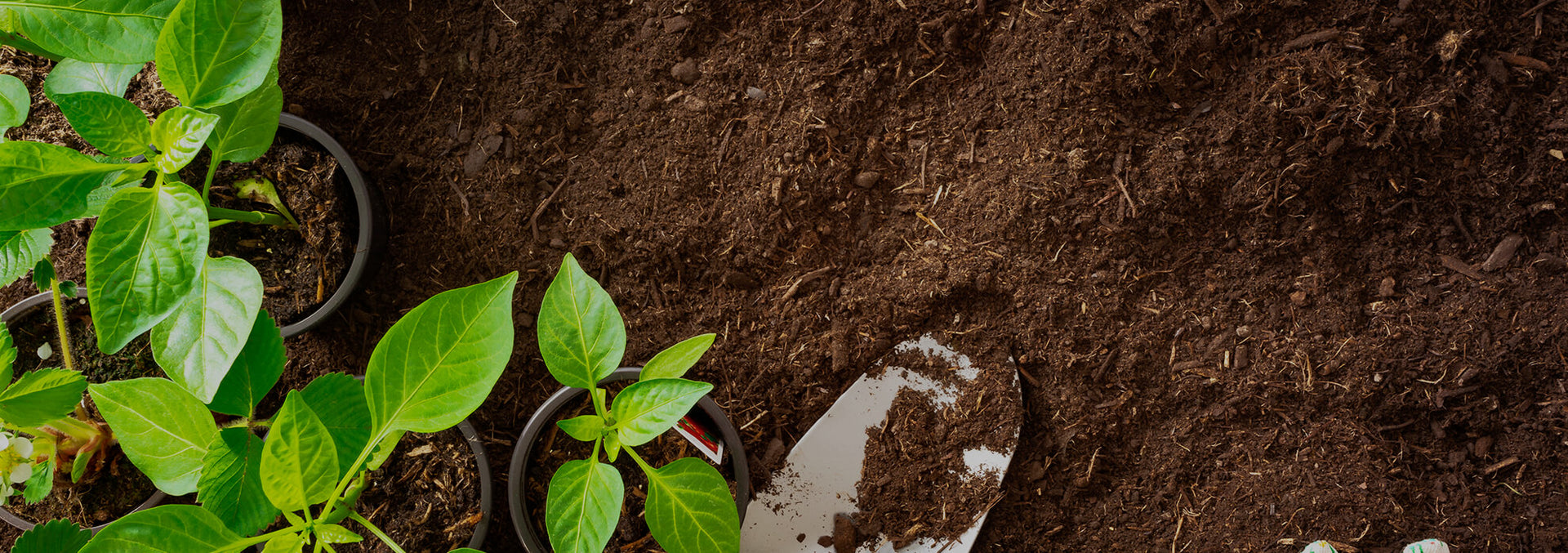Many Bacteria really are Beneficial!
In this era of antibacterial soap, overuse of antibiotics, and lots of fear around outbreaks and disease, bacteria are getting a pretty bad reputation. Some species are harmful, it’s true. But we depend on good bacteria every single day! Unfortunately, many people have lumped an extremely large and diverse group of organisms into one negative stereotype. We received an interesting question on this, via our Facebook page. It’s a pretty common question for us and an unfortunate fear shared by many. The question was: "Is it safe to grow vegetables after using your Penetrate product? How can I know that none of the bacilli are toxic?" We gave a short reply but felt the topic warranted a more in-depth discussion here on the blog. Here is the short answer: Yes!! It is completely safe to grow vegetables in soil where Penetrate Liquid Bio-tiller was applied. In fact, we occasionally use it as a topical spray on vegetables, to combat powdery mildew. The Bacilli present in Penetrate are found naturally in healthy soils and are completely harmless. The three strains we include are Bacillus subtilis, Bacillus pumulus and Bacillus licheniformis, all of which are nontoxic, naturally occurring bacteria.
Not all bacteria are harmful. Not all bacteria cause disease or infection. In fact, many prevent it! Many beneficial bacteria crowd out the “bad” kind, keeping them at bay. Beneficial bacteria are everywhere in our world, including inside of our bodies! Each and every one of us has millions of beneficial bacteria living in our intestinal tracts. We eat foods that help increase our intestinal flora and encourage their healthy growth. We call these foods probiotics, which include yogurt and some fermented foods. Some scientists estimate that there are 10 bacterial cells to every 1 human cell in the average human body. We are outnumbered and it is to our benefit! In our digestive systems, bacteria help us to break down food and release some of the nutrients stored within that food. They are absolutely essential to our digestive tracts! They play a very similar role in the soil: they digest particles of soil, unleashing otherwise unavailable nutrients. When bacteria are part of a healthy soil food web, those nutrients become unlocked and available for plants to use. The soil food web consists of several microorganisms that co-exist in healthy soil. You can learn more about these interactions here. When you add John and Bob’s products to your soil, you are inoculating them with these beneficial bacteria and other microorganisms, to help increase the strength of the soil food web and the health of your garden. Essentially, John and Bob’s is probiotics for your plants! Click here to learn more.
 Bacteria are also essential components of decomposition. Healthful bacteria break down dead and decaying plant and animal matter helping to turn it into nutritious compost, out of which new life can grow. Here is a quick, easy rule of thumb, for telling healthy bacteria from the harmful kind. Destructive, unhealthy bacteria are anaerobic, meaning they grow without oxygen. They occur and are sustained by moist, dark, inactive conditions without air. When some foods rot and becomes slimy and foul-smelling, it’s often an anaerobic activity. These are the bacteria that lead to food poisoning. All of our beneficial bacteria grow in aerobic conditions and require sufficient oxygen to thrive. In healthy compost piles and well-aerated soil, beneficial bacteria reign supreme and crowd out the harmful species. Good bacteria (aerobic) are much stronger and are dominant over bad bacteria (anaerobic) as long as the conditions are suitable. There is really no need to fear all bacteria. Most are extremely helpful to the soil, plants and us! Two of our products, Penetrate and Maximize, contain these helpful bacteria. The other two products, Optimize and Nourish Bio-Sol, help to encourage and maintain their growth. You can read more about all these products and their affect on the soil by visiting our website. We welcome your questions and comments! Please leave a comment below or on our Facebook page!
Bacteria are also essential components of decomposition. Healthful bacteria break down dead and decaying plant and animal matter helping to turn it into nutritious compost, out of which new life can grow. Here is a quick, easy rule of thumb, for telling healthy bacteria from the harmful kind. Destructive, unhealthy bacteria are anaerobic, meaning they grow without oxygen. They occur and are sustained by moist, dark, inactive conditions without air. When some foods rot and becomes slimy and foul-smelling, it’s often an anaerobic activity. These are the bacteria that lead to food poisoning. All of our beneficial bacteria grow in aerobic conditions and require sufficient oxygen to thrive. In healthy compost piles and well-aerated soil, beneficial bacteria reign supreme and crowd out the harmful species. Good bacteria (aerobic) are much stronger and are dominant over bad bacteria (anaerobic) as long as the conditions are suitable. There is really no need to fear all bacteria. Most are extremely helpful to the soil, plants and us! Two of our products, Penetrate and Maximize, contain these helpful bacteria. The other two products, Optimize and Nourish Bio-Sol, help to encourage and maintain their growth. You can read more about all these products and their affect on the soil by visiting our website. We welcome your questions and comments! Please leave a comment below or on our Facebook page!

